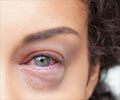A recent research proposes that the drug used to treat wet age-related macular degeneration (wet AMD) could also aid in improvement of vision in some people.
Wet AMD is the biggest cause of loss of vision in the UK. Sight can be regained to some extent in people with a specific type of retina degeneration by giving injections of the drug Lucentis.The study was published in the New England Journal of Medicine. The research involved 716 patients who were given eye chart tests before and after receiving the drug or a placebo. It was found that sight loss was slowed down in 9 out of 10 patients and improvement in vision in about 1/3rd of those who received the drug. However, slowing down of sight loss was observed in only 5 out of 10 patients who received a placebo.
After 2 years of treatment, 9 out of 10 of those given the drug lost less than 15 of the letters on the chart when compared to 5 out 10 in case of those receiving a placebo. Improvement in vision was observed in 26% of those receiving 0.3mg of the drug and 33% of those receiving 0.5mg compared to 4% on the placebo. This revealed that they could read an additional three lines or 15 or more letters on an eye chart after a course of treatment.
Lucentis (ranibizumab), is used to treat wet AMD. It has been approved for use in the U.S. but yet to be approved in Europe. The National Institute for Health and Clinical Excellence (NICE) should evaluate this drug. Ranibizumab belongs to the class known as anti-angiogenics. It prevents the formation of abnormal, new blood vessels in the eye, and dries up previously leaking vessels.
Steve Winyard, of the Royal National Institute for the Blind (RNIB), said, "The results were very exciting". He added: "Thousands of people a year in the UK get wet AMD and it rapidly leads to sight loss. This drug is particularly exciting because it can treat all types of AMD. Although this is not a cure, ranibizumab is great news for individual patients as it offers them the chance of having their vision restored."
A major cause of blindness in UK is the wet AMD. Thousands of new cases are reported every year. In UK, nearly 5,00,000 people are affected by wet and dry forms of AMD with 20,000 of them accounting for the wet form. The wet form is responsible for 90% of the cases of blindness due to this disorder. In this condition, new blood vessels are formed behind the retina causing bleeding and scarring. Increasing age, smoking and genetic factors are considered to increase the risk of AMD.
Advertisement
The Macular Disease Society said, "It is vital Lucentis is granted a Europe-wide licence and treatment is funded by the NHS as soon as possible. It is a treatment that is effective within the first few weeks of onset of Wet AMD. If funding by primary care trusts is delayed until Nice complete their review then thousands of people could lose their sight irreversibly."
Advertisement
GYT







